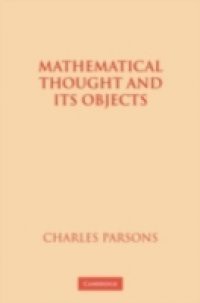Charles Parsons examines the notion of object, with the aim to navigate between nominalism, denying that distinctively mathematical objects exist, and forms of Platonism that postulate a transcendent realm of such objects. He introduces the central mathematical notion of structure and defends a version of the structuralist view of mathematical objects, according to which their existence is relative to a structure and they have no more of a 'nature' than that confers on them. Parsons also analyzes the concept of intuition and presents a conception of it distantly inspired by that of Kant, which describes a basic kind of access to abstract objects and an element of a first conception of the infinite.

